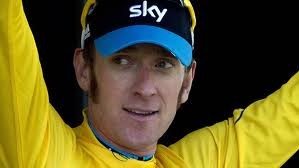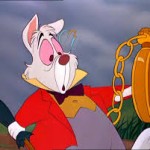Bradley Wiggins – lessons in teamwork
I enjoy a bit of sedentary cycling and have been known to jump on a Boris Bike. But I have never really taken much interest in cycling as a sport. Until now. It has been difficult to escape the excitement surrounding Bradley Wiggins and his Tour de France victory. When I began to understand more about how the race was one I realised that the real story was not so much about Bradley Wiggins but more about Team Sky. We can learn a lot from this extraordinary team and its achievement. And the lessons are just as important to business as they are to sport.
What I hadn’t realised (apologies to cycling enthusiasts who know all this) is that Bradley’s win did not come out of nowhere. It was part of a masterful and finely executed plan in which each member of Team Sky played a crucial part. What is most striking about the story is that any member of the team could (in theory) have been the winner. But the plan was to achieve a win for the team by supporting Bradley’s progress through the course, employing tactics to boost his performance at every stage, thereby ensuring his success overall. In other words the team were united behind a common cause which took precedence over any individual egos and aspirations.
Read any account of Team Sky’s performance and you begin to understand the very specific role that each member played throughout the race. Bradley was the team leader who put in years of relentless hard work and stuck rigidly to his belief in winning. Bradley had to acknowledge his weaknesses (he is apparently not the strongest climber) in order to get support from others in the team where he needed it. Chris Froome, coming second overall, was prepared to stand in if Bradley faltered. He is a better climber than Bradley and could have sought more glory in the race. But that was not part of the plan and so he held back when necessary. Christian Knees, a former champion, stayed at the front during the early stages to control any possible contenders to Bradley. He helped Bradley by keeping him out of the wind for long stretches, allowing him to save his energy for the later crucial stages in the race.
This is impressive team work. The vision to win was truly shared by all; the plan for achieving the goal was meticulously crafted and carefully executed; and everyone involved understood their role in the process. Wouldn’t it be great if more senior management teams followed this example? In business, teams so often fail because individual members struggle to unite behind the common goal. And yet executive teams in particular have a crucial responsibility to the organisation to deliver results collectively. There is no room for personal glory or for defending your own territory regardless of the common cause. Organisations which fail to address the ‘silo’ mentality are highly unlikely to succeed in the long run.
We should of course congratulate Bradley Wiggins for his win. But we should also acknowledge the part each team member played in achieving this victory. Their performance required a level of discipline and self sacrifice that few teams can muster.
Both comments and pings are currently closed.


















